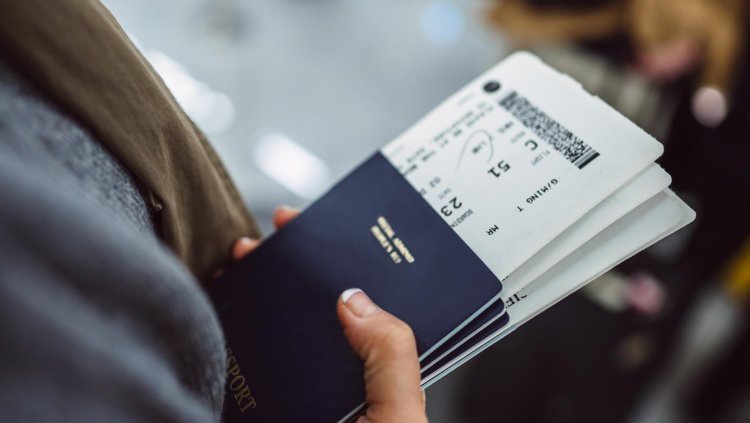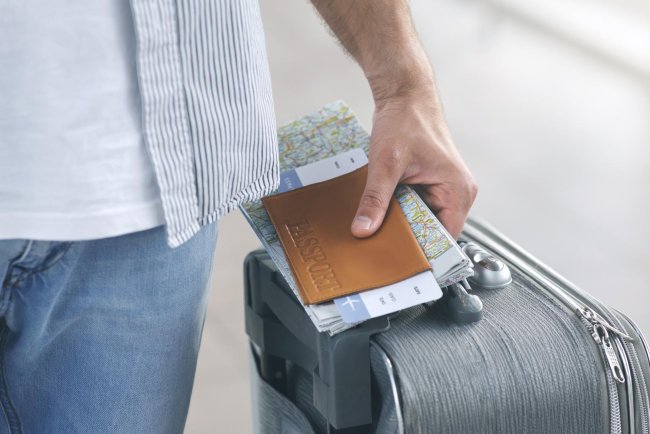Travel insurance is a critical component of any travel plan, offering protection and peace of mind against various risks. Whether you're heading for a relaxing beach vacation, an adventurous trek, or a business trip, understanding the details of travel insurance can make all the difference. This comprehensive guide covers the seven essential details you need to consider when securing travel insurance.
1. Understand the Coverage Types
When choosing travel insurance, it’s vital to understand the different types of coverage available. This ensures you get a policy that fits your needs. Here are the primary types of coverage to consider:
Medical Coverage
This is one of the most crucial aspects of travel insurance. It covers medical expenses in case you fall ill or get injured while abroad. Check the policy to ensure it covers emergency medical treatments, hospital stays, and potentially evacuation if necessary. Some policies also include coverage for pre-existing conditions, though this varies.
Trip Cancellation and Interruption
This coverage reimburses you for non-refundable trip costs if you need to cancel or cut short your trip due to unforeseen events. Reasons might include illness, a family emergency, or other covered events. Be sure to review the specific conditions under which you can claim.
Baggage Loss and Delay
Lost or delayed baggage can be a significant inconvenience. This coverage compensates you for the loss, theft, or damage to your personal belongings. It also provides reimbursement for essential items you might need to purchase while waiting for your luggage.
Travel Delay
This coverage helps you recover additional expenses incurred due to travel delays, such as accommodation and meals. Ensure you understand the conditions under which this coverage applies and the maximum limits.
Accidental Death and Dismemberment
While not pleasant to think about, this coverage provides financial support in the event of serious accidents. It can offer compensation to your beneficiaries if the worst should happen.
2. Check for Exclusions and Limitations
Every travel insurance policy has exclusions and limitations. It’s essential to be aware of these to avoid surprises when you need to make a claim. Common exclusions might include:
- High-Risk Activities: Coverage may not apply to activities considered high risk, such as skydiving or scuba diving.
- Pre-existing Conditions: Many policies exclude coverage for pre-existing medical conditions unless you purchase additional coverage.
- Travel to Certain Destinations: Insurance might be limited or unavailable for travel to high-risk areas or countries under travel advisories.
Carefully read the policy documents and ask questions if anything is unclear. Knowing these details beforehand helps you make informed decisions and avoid potential claim rejections.
3. Verify Policy Limits and Deductibles
Understanding the limits and deductibles of your travel insurance policy is crucial.
Coverage Limits
Each type of coverage has a maximum limit, which is the highest amount the insurer will pay for a claim. For example, medical coverage might have a limit of $1 million. Ensure the limits are adequate for your needs and the potential costs of your trip.
Deductibles
A deductible is the amount you must pay out-of-pocket before the insurance kicks in. Higher deductibles typically mean lower premiums but more cost-sharing if you need to make a claim. Choose a deductible level that you can comfortably afford in the event of a claim.
4. Assess the Insurer’s Reputation and Customer Service
The insurer’s reputation and customer service quality are vital factors in your decision-making process. Look for:
Customer Reviews and Ratings
Research online reviews and ratings for the insurance provider. Positive feedback about their claims process and customer support can be reassuring.
Financial Stability
Choose a provider with strong financial stability. You can check their ratings from agencies like A.M. Best or Standard & Poor’s to ensure they can handle claims efficiently.
24/7 Assistance
Travel issues can arise at any time, so having access to 24/7 customer support is essential. Ensure the insurer offers around-the-clock assistance for emergencies and claims support.
5. Confirm Coverage for Special Needs
If you have specific needs or circumstances, confirm that they are covered under your policy. This might include:
Pre-existing Medical Conditions
Some insurers offer coverage for pre-existing conditions, but it usually requires purchasing a specialized policy or rider. Verify the terms and any additional costs.
High-Risk Activities
If you plan to engage in activities like skiing or scuba diving, make sure the policy covers these activities or offers an add-on for adventure sports.
Travel with Pets
If you’re traveling with pets, check if the insurance covers veterinary costs or other pet-related issues.
6. Compare Policies and Costs
Not all travel insurance policies are created equal. Take the time to compare different policies to find the best fit for your needs and budget. Consider the following when comparing:
Coverage Details
Ensure the policies you compare offer similar coverage types and limits. Some may offer additional perks like rental car coverage or roadside assistance.
Premiums
Compare the premiums of different policies. While a lower premium might be appealing, ensure it doesn’t come at the expense of essential coverage.
Additional Costs
Check for any hidden fees or additional costs associated with the policy, such as service fees or charges for making changes to your coverage.
7. Read the Fine Print
Before purchasing travel insurance, carefully read the policy documents, including the fine print. This includes:
Policy Exclusions
Understand what is not covered to avoid unpleasant surprises during a claim. Pay close attention to common exclusions and ensure you’re comfortable with them.
Claims Process
Familiarize yourself with the claims process, including how to report a claim, the documentation required, and the timeline for processing. Knowing these details in advance helps you act quickly and efficiently if you need to make a claim.
Policy Amendments
Understand the terms for modifying your policy if needed. This might include adding coverage or extending your policy if your travel plans change.
Travel insurance is a vital investment for any trip, providing essential protection and peace of mind. By understanding and verifying these seven details, you can ensure that you select the right policy for your needs and travel with confidence. Remember to review your policy thoroughly and choose an insurer with a strong reputation for reliability and customer service. Safe travels!
FAQs




















